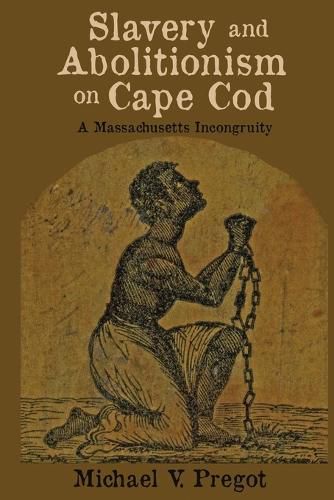Readings Newsletter
Become a Readings Member to make your shopping experience even easier.
Sign in or sign up for free!
You’re not far away from qualifying for FREE standard shipping within Australia
You’ve qualified for FREE standard shipping within Australia
The cart is loading…






This title is printed to order. This book may have been self-published. If so, we cannot guarantee the quality of the content. In the main most books will have gone through the editing process however some may not. We therefore suggest that you be aware of this before ordering this book. If in doubt check either the author or publisher’s details as we are unable to accept any returns unless they are faulty. Please contact us if you have any questions.
From the start of the Puritan era through the end of the Revolutionary War, Boston was the central hub of the slave trade. Slaves were brought onboard ships from the African coast with regularity, often mastered by Cape Cod sea captains. The total number of slaves per household was certainly much smaller in the Northeast than they were in the larger plantations found in the South, but, nonetheless, a much-needed labor force was deemed a necessity.
After Massachusetts legally prohibited the practice of slavery in 1780, sea captains continued to engage in its development in a variety of ways. Some captains would bring slaves in surreptitiously, while other masters of the sea profited in indirect ways. Some mariners provided inexpensive low-grade food to the plantations, while others would bring cotton to the North for textile work. In the early 1800s the Commonwealth's shipping industry became divided, with some men fighting for the cause of abolitionism while other captains preferred a very slow demise to this human trafficking.
Massachusetts would eventually lead a movement to fight for total abolitionism. To understand the thinking of the day, religious views, political positions, economic factors, and social movements are all placed into sharper detail and given greater context. By sharing profiles of notable Black people living in Massachusetts, we acknowledge the enormous positive contributions made by those forced to relinquish their personal right to freedom.
$9.00 standard shipping within Australia
FREE standard shipping within Australia for orders over $100.00
Express & International shipping calculated at checkout
This title is printed to order. This book may have been self-published. If so, we cannot guarantee the quality of the content. In the main most books will have gone through the editing process however some may not. We therefore suggest that you be aware of this before ordering this book. If in doubt check either the author or publisher’s details as we are unable to accept any returns unless they are faulty. Please contact us if you have any questions.
From the start of the Puritan era through the end of the Revolutionary War, Boston was the central hub of the slave trade. Slaves were brought onboard ships from the African coast with regularity, often mastered by Cape Cod sea captains. The total number of slaves per household was certainly much smaller in the Northeast than they were in the larger plantations found in the South, but, nonetheless, a much-needed labor force was deemed a necessity.
After Massachusetts legally prohibited the practice of slavery in 1780, sea captains continued to engage in its development in a variety of ways. Some captains would bring slaves in surreptitiously, while other masters of the sea profited in indirect ways. Some mariners provided inexpensive low-grade food to the plantations, while others would bring cotton to the North for textile work. In the early 1800s the Commonwealth's shipping industry became divided, with some men fighting for the cause of abolitionism while other captains preferred a very slow demise to this human trafficking.
Massachusetts would eventually lead a movement to fight for total abolitionism. To understand the thinking of the day, religious views, political positions, economic factors, and social movements are all placed into sharper detail and given greater context. By sharing profiles of notable Black people living in Massachusetts, we acknowledge the enormous positive contributions made by those forced to relinquish their personal right to freedom.